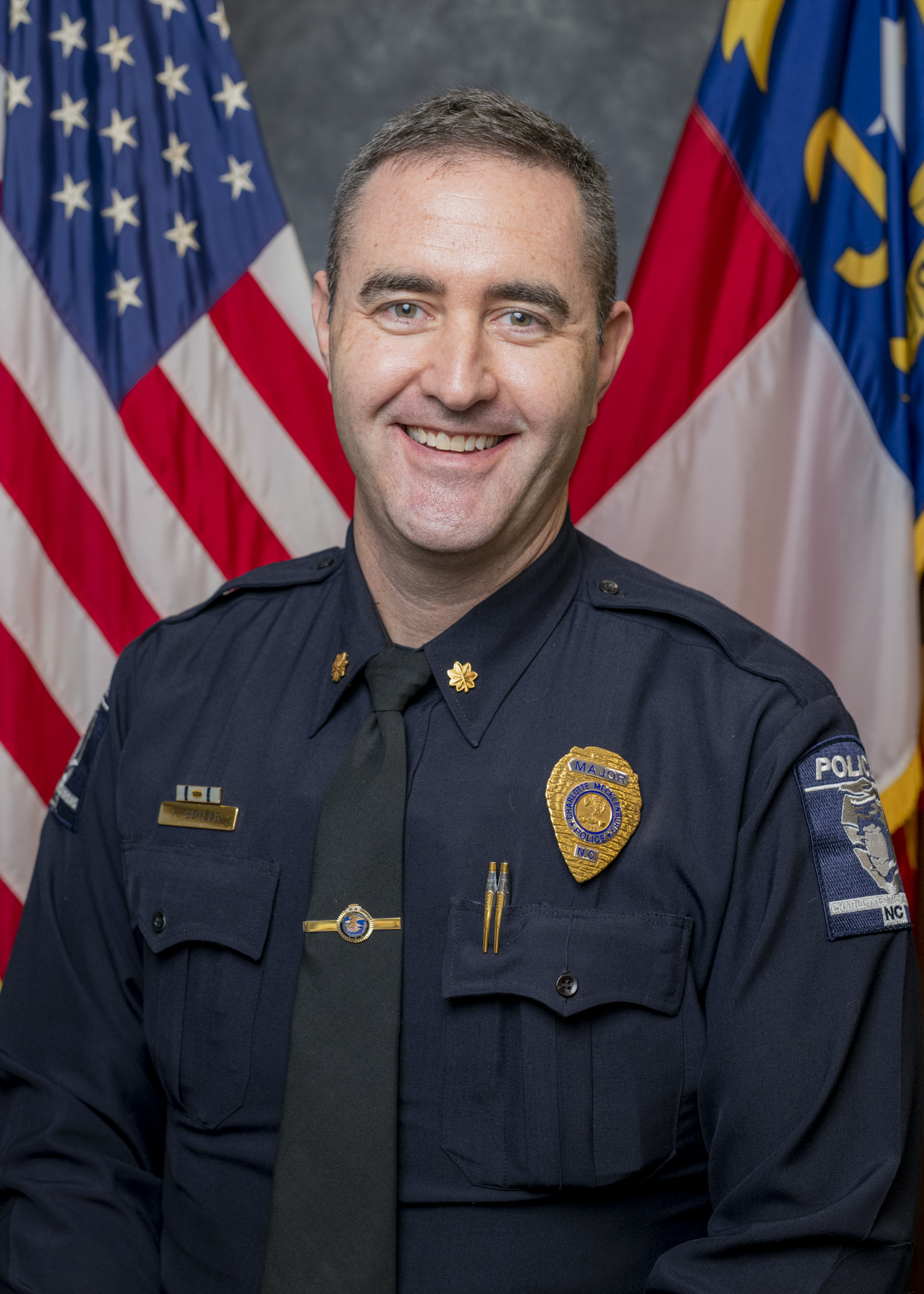
As a Major with the Charlotte-Mecklenburg Police Department, Ryan Butler's responsibilities include overseeing divisions such as Freedom, North, and Metro, as well as managing law enforcement operations at the Charlotte Douglas International Airport. Major Butler plays a key role in ensuring public safety across these districts, working closely with community coordinators and law enforcement teams to address crime and enhance community relations. He is an alumni of the Master of Public Safety Program ‘22 and a graduate of FBI National Academy #276.
Major Butler took time to answer our questions and shared a recent example of how he translated his experience in the UVA Master of Public Safety program into an effective solution to challenges his department faced in hiring officers.
What is one major issue you see in policing today?
Butler: While swaths of public animosity towards the policing profession seem to have abated, police agencies are still dealing with staffing disparities created by large numbers of retiring personnel who entered the profession during the Clinton-era COPS grants, and a reduced talent pool based on a variety of factors from disinterest, disillusionment, and the prioritizing of work-life balance. The fact that you cannot be a police officer and telecommute, nor make your own hours, or be your own boss are additional challenges.
You've shared that you participated in the UVA Master of Public Safety program, and have been able to implement what you learned to drive change in your department. Can you tell us about that?
Butler: Despite hiring challenges I mentioned already, I can say on a micro level we are beginning to experience the signs of success and indicators of a new crop of police officers who are allowing our department to thrive in these conditions. In November 2021, while endeavoring to complete Stewardship of Public Assets and Managing Human Capital with Professors Farr and Murphy, I received an unexpected phone call advising me that I would be transferred from our Special Investigations Bureau (think federal task forces, fugitive apprehension, and Vice & Narcotics) to the Recruitment & Training Bureau.) I had zero experience in either recruiting or training; I had not even been a field training officer. Armed only with my stewardship project, and some previous experience in sales, pre-policing, I took my recruiting, training and retention plans to an academy designed to serve a 2,000-officer department. The first thing I acknowledged was that this assignment was NOT about policing. This was a sales and service job -- a car dealership -- and you were either in sales (recruiting) or service (training). We began market research on where our applicants were coming from, discerned where we were strongest outside of our immediate regional area and started putting salespeople (recruiters) on the road.
Butler shared specifics tactics his department rolled out, including:
- Taking pieces of their in-processing program and allowed candidates to conduct portions online, at the testing sites or through condensed single visits that prevented them from coming to see them multiple times.
- Identifying colleges and military installations that were the most willing to partner and dedicating staffing to ensure department presence at their events.
- Redesigning their website and marketing material to simplify the process.
- Adding an additional recruit class (now four traditional and two lateral academies per year) and offering ESL testing to remove barriers to access.
- Increasing their social media presence with recruiters and command staff to increase visibility and adding platforms we were previously underutilizing.
- Expanding a paid internship to 50 interns each summer and regularly convert those participants into applicants for full-time sworn or civilian staff.
With all that you've adjusted, what do you feel has been the key to your success?
Butler: The key has been to modify our perspective to that of our customer, the candidate. It is no longer about what the customer can do for US, it is about what we can do for the customer. What are the benefits, how do we develop, care for, and maintain them physically, mentally, and emotionally?
Subsequently, this must go beyond recruitment and training. Departments need to look at how command staff and supervisors put this into practice. The battle for hearts and minds is no longer between the police and the community alone. It is within the police department, and requires continuous effort and iterative improvement from the day the recruit shows up until they safely and successfully retire or transition their skills to another professional arena.
Our efforts now have us on track to be fully staffed in FY26 and anticipate a request being made to city council next year to allow us to expand our sworn allocation.